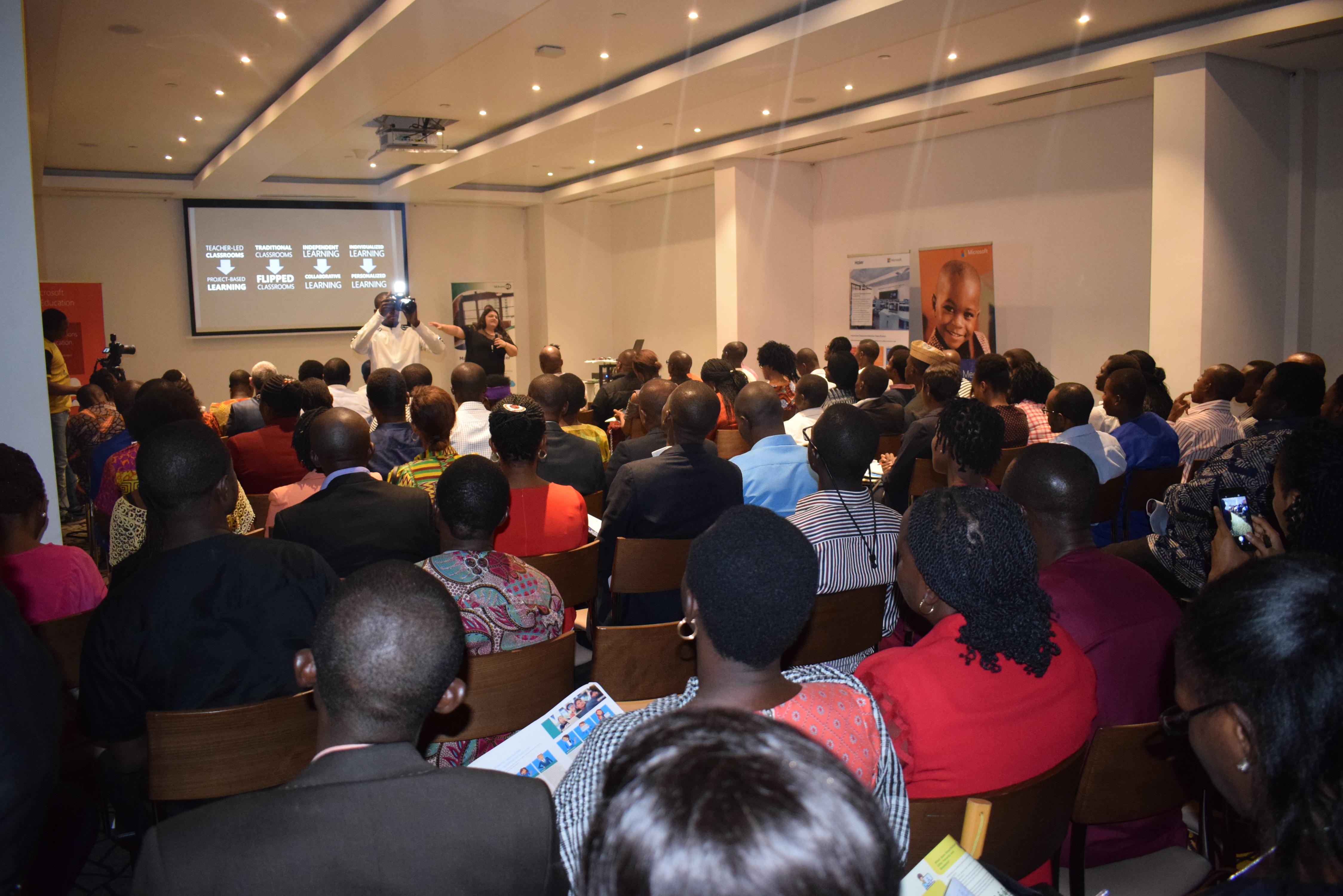GRTech
Sidmach displays innovative prowess at education summit in Lagos


The much publicised simplified, reliable, and affordable School Management solution suitable for every school, that allows schools keep track of information as it relates to academics- SmartSchool, has been unveiled.
The solution was developed by leading indigenous software company, Sidmach Technologies Nigeria Limited.
The cloud based solution was unveiled at the Digital Transformation in Education summit organised by Microsoft Nigeria in conjunction with Sidmach Technologies.
In a presentation, the Account Manager for Sidmach Technologies, Mr. Owhofasa Imoh, said this will assist in the management of various aspects of school operations, and was designed to manage the registration processes, examination processes, record keeping and collation of schools, amongst several other things.
SmartSchool functions in a flexible manner such that it caters for the needs of both primary and secondary school to improve services to students, staff, visitors, while parents can leverage the platform to ascertain the behaviour of their kids in school.
“With SmartSchool you go online and subscribe to a service and you give access to your users; primarily the teachers to keep track of activities in School such as student’s attendance, academic records, student’s behaviour and many other features imbedded in the solution.
“With our SmartSchool, schools will be able to manage school administration; teachers and student management; access NERDC curriculum and WAEC Chief Examiner report, imagine Academy Office and Certification.
“It is open to any school for adoption. However, as a subscription service, private schools can easily sign up. For public schools, I suspect they might be going through the government.
Mr. Imoh further told TechEconomy.ng that as an indigenous country, the subscription fees are payable in Naira.
“As a Nigerian user you make payment in Naira. However, if you are using a foreign online payment service it should be able to convert the payment to Naira.
Upon signing up an administrator grants access to whoever should have access to its usage. “As a proprietor- I sign up, make payment and gain access to the solution- I will begin to add users; who are my teachers. So, they receive an email to get their login or signup to perform their functions.
While emphasising on the need for schools to adopt technological tools like SmartSchools, the Education Program Manager at Microsoft Nigeria, Jordan Belmonte, said that Educationists have to keep in mind that technology is changing rapidly where the user now controls the real life impact.
“Whether we like it or not technology is here to stay. We are only required to think on how to leverage them to solve social problems like in education, water, issues in global health, conflicts/war, climate change, energy, amongst others as captured in the Social Development Goals.
“We need to ask questions like: are we teaching students the skills to go out there in the world and solve the existing problems? Or are we just churning out graduates who can’t fit in into the present workplace.
Speaking on why digital transformation in education is crucial she said the shift in standards moving from manufacturing to information economy where artificial intelligence, machine learning, robotics, cloud and other tools will be the order of the day, entails that schools can’t be the laggards.
“Think about marketing and how digital solutions have transformed the job; today, digital marketing is the skill every marketer needs to learn.
“Due to flexibility of skills today, statistics show that people are no longer interested in staying in same job for 30 years, rather they have 10 different skills before 40 years”.
Belmonte thus described digital transformation in education as a way to support the demand for robust essential life skills- critical thinking, creativity, collaboration, communication among the pupils.
She said that Microsoft will continue to partner with Sidmach towards creating more values for teachers; flexibility and creating the solutions that enable easy teaching and learning; better learning outcomes, saves teachers time, affordable easy to manage devices.
“Sidmach is a great company and has been doing a lot in the smartschool solution; we are happy to work with them”, she said.
Earlier, the Head of Sales and Marketing at Sidmach, Mr. Olayemi Olaleyon, said that the Company has been developing solutions in the education sector for close to three decades and has assisted the industry in transforming processes through digital tools.
For instance, in 1999, Sidmach helped WAEC to introduce Computer Based Testing; chief Examiner’s Report; Biometric e-Registration/ photo embossment on WAEC certificate.
“2012 in partnership with NERDC, we introduced e-curriculum; digitization of the National Curriculum. We help teachers to work smarter. So, over the years, we have worked with Microsoft to achieve these feats; Sidmach is Microsoft’s Gold Partner in Nigeria for over 15 years.
“Come to us with any ICT related challenge and we shall find a platform to solve it. Ours is to find a smarter way to transform what you are currently doing, digitally”, Olaleyon said.
The summit also featured a demo session on Sidmach’s newest solutions such as the Simple Electronic Assessment and Marking System (SEAMS).
According to the Creative Marketing Officer, Sidmach Technologies, Akintunde Opawole, the solution will enable schools and examination bodies enhance the conduct of examinations, marking of answer scripts and scoring of their various students.
He explained that SEAMS is a comprehensive solution that provides institutions with an automatic conversion of examination answer booklets or forms filled on paper to digital format in real time.
“It also allows candidates to take exams using their familiar pen and paper while converting it real time to electronic format.
“It provides easy and safe archiving of exams scripts. It saves cost, time and provides fast results,” he added.
According to him, this solution will convert exams scripts electronically in real time without the teachers having to input records manually.


Akintunde Opawole; Oluseyi Odusanya; Jordan Belmonte (Microsoft); Owhofasa Imoh and Oladiran Olayemi. at the event
Source: TechEconomy.ng
-



 Business4 days ago
Business4 days agoNo More “Job” Scandals: QNET Unveils 2026 Plan to Protect Nigerians from Fake Recruitment
-



 GRTech2 days ago
GRTech2 days agoSophos Active Adversary Report 2026: Identity attacks dominate as threat groups proliferate
-



 Travel1 day ago
Travel1 day agoNAPTIP, UK Government Unite to Amplify Voices of Trafficking Survivors
-



 Energy1 day ago
Energy1 day agoConoil Valentine Bonanza Winners Emerge






